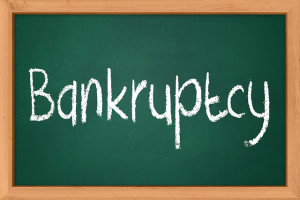Introduction
Dispelling common myths surrounding income-tax debts is crucial for making informed financial decisions. While Chapter 13 bankruptcy is often associated with a prolonged repayment plan, the reality is that various options exist, and each individual’s situation is unique. Let’s explore the truth behind these myths and how a personalized approach can guide you towards the most effective solution.
Myth 1: Chapter 13 is the Only Solution for Income-Tax Debts
Contrary to popular belief, filing for Chapter 13 bankruptcy isn’t the sole solution for handling income-tax debts. The myth persists because Chapter 13 is indeed an excellent option for certain cases. However, the key lies in understanding the specifics of your situation, which requires a tailored evaluation by an experienced attorney.
Myth 2: Income Tax Debts Cannot Be Discharged in Bankruptcy
While it’s true that not all income-tax debts are dischargeable, the blanket statement that they cannot be discharged is a myth. There are conditions that, if met, allow for the discharge of income-tax debts. An attorney, equipped with your tax account transcripts, can assess each tax year individually to determine eligibility for discharge.
Navigating Chapter 7 vs. Chapter 13
Determining whether Chapter 7 or Chapter 13 is more suitable depends on various factors, including the recency of the income-tax debt. Chapter 13 may be preferable for recent debts, offering a chance to avoid penalties and interest. However, if most of your tax debts are dischargeable, Chapter 7 might be a more favorable option based on your overall financial circumstances.
Conditions for Discharging Income Tax Debt
Understanding the conditions for discharging income-tax debt in Chapter 7 is crucial. This includes meeting criteria such as the tax return due date, filing date, assessment period, and avoiding fraudulent activities. These factors, when evaluated by an attorney, contribute to a well-informed decision.
Conclusion
Debunking myths and understanding the nuanced conditions for dealing with income-tax debts requires a personalized approach. Consultation with a knowledgeable attorney, like Jennifer Weil, Esq., ensures a thorough evaluation of your specific circumstances.

